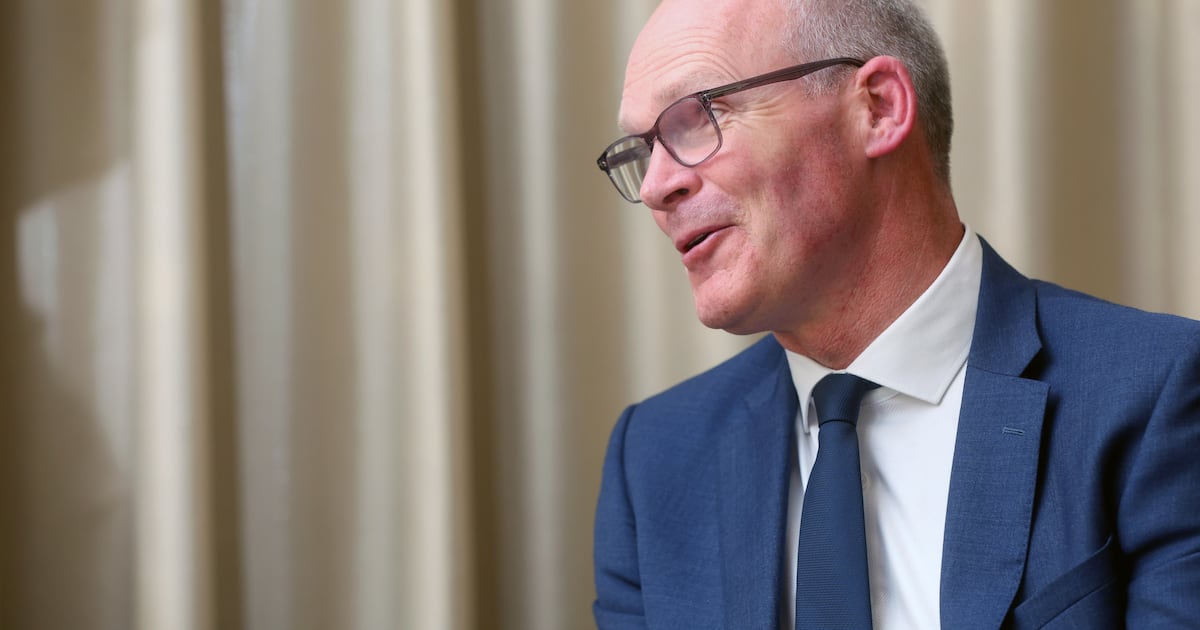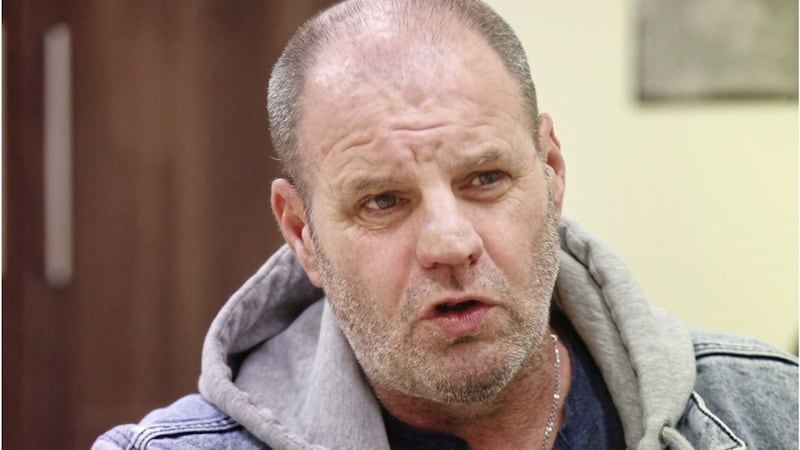Simon Coveney recalls his life in terms of before and after March 14 1998.
He was 25 at the time and skippering the family yacht Golden Apple, as he and four of his six siblings sailed around the world, raising funds for children affected by the Chernobyl disaster 12 years previously.
They were in the Galápagos Islands when an email arrived via satellite with an instruction to phone home.
Coveney found a pay phone and reversed the charges, only to learn of the death of his father Hugh, a former Fine Gael minister and serving TD, who had fallen from a cliff at Cork Harbour as he attempted to rescue one of his dogs during a walk.
A former mayor of Cork city, who served as a minister in John Bruton’s cabinet, Coveny Snr was from affluent, merchant stock but also regarded as a successful businessman in his own right before he entered politics.
His son says Hugh Coveney taught his children to “make something of ourselves and be a success somewhere else before bringing that skill set into politics”.
However, circumstances would mean politics came first for his third eldest child, who stood in the subsequent Dáil by-election and topped the poll.
It’s said that it transformed the newly-elected TD for Cork South-Central from boy to man almost overnight.
“There are sometimes moments in your life when you remember things on the basis of what happened before that moment and then what happened after that,” he told a recent Manufacturing NI event in Belfast, attending and speaking in his new guise as a businessman, having announced his intention to quit politics two years ago.
“It is such a fundamental change in direction, in terms of your thought process, the responsibility that you have in life, the direction that you choose to travel in.”
After a relatively low-key start to his political career, Coveney was promoted to the Fine Gael opposition front bench under Enda Kenny.
He then served three years as an MEP between 2004, before returning to the Dáil.
His first ministerial position came in 2011 as part of a Fine Gael–Labour Party coalition, where he was minister for agriculture, food and the marine, taking on the additional role of minister for defence in 2014 following the resignation of Eamon Gilmore as tánaiste.
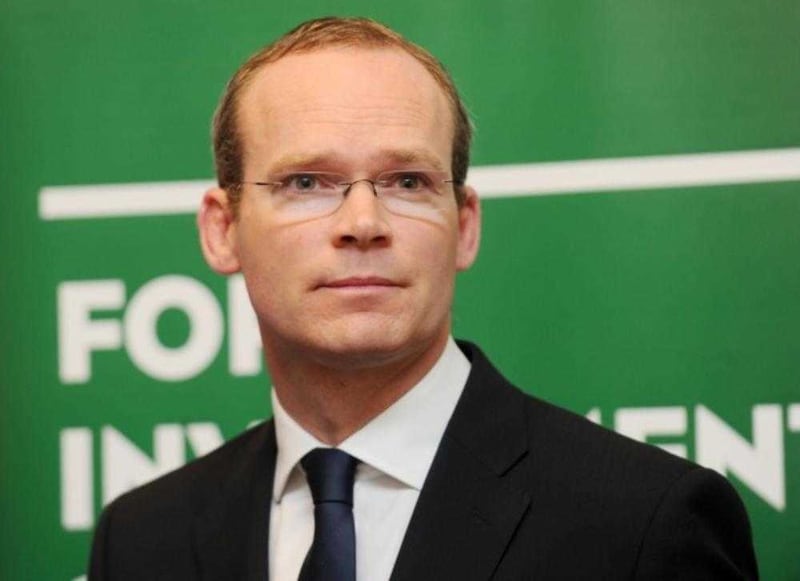 Simon Coveney in 2015
Simon Coveney in 2015
He held the housing portfolio for little over a year up until June 2017, where in the aftermath of Kenny’s resignation he contested the Fine Gael leadership election, losing out to Leo Varadkar, despite being the most popular candidate among party members.
It was in June 2017, in the aftermath of the UK vote to leave the EU, that the newly-elected Fine Gael deputy leader came to prominence north of the border, as minister for foreign affairs with special responsibility for Brexit. A matter of months later, he was appointed tánaiste.
His role in the Brexit negotiations, and the Dublin government’s EU-backed insistence that there would be no hard border in Ireland, led to some vilification from unionists of the then tánaiste and taoiseach Leo Varadkar.
An advocate of the ‘backstop’ that would’ve seen the UK as a whole remain in the EU’s customs union until an alternative arrangement was agreed, he was left frustrated by Tory Brexiteers’ persistent efforts to undermine the then prime minister Theresa May, at one point describing their arguments against a deal as “farcical”.
Even after May’s successor Boris Johnson agreed the protocol, the criticism from unionists continued. In 2002, then DUP leader Arlene Foster said Coveney was “tone deaf to the concerns of unionism”.
“Throughout that process, I’d like to think that I was consistent in terms of what I was trying to do,” he tells The Irish News during a recent visit to Belfast.
“From the day I became foreign minister to four to five years later, I was trying to protect the all-island economy, a functioning peace process, and ensuring Ireland’s place in the EU was not being undermined.
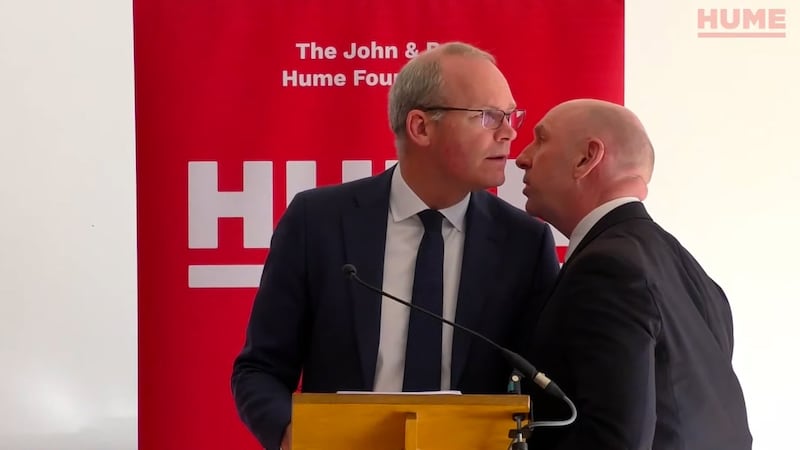 Simon Coveney is informed of a security alert while speaking at an event in north Belfast (Hume Foundation/PA)
Simon Coveney is informed of a security alert while speaking at an event in north Belfast (Hume Foundation/PA)
“It was also important to keep Ireland’s trading relationship with the UK as functional as possible, because it’s a hugely important part of the Irish economy – all of those things were achieved in the end.”
He says the period prior to Brexit being finalised was characterised by “lots of tension, lots of debate and at times frustration – and some violence and protest”.
He points out that from the time when he became foreign affairs minister up to the signing of the Windsor Framework in February 2023, there were “four British prime ministers, five foreign secretaries, six secretaries of state for Northern Ireland, and seven Brexit negotiators for the British government”.
“It wasn’t easy in terms of trying to build relationships and trust, to try to guess outcomes that we can all live with.
“I’d be the first to say that this was a very uncomfortable and difficult period for unionism but it was also very uncomfortable period for many nationalists in Northern Ireland too, who felt that actually we weren’t going to be able to avoid physical border infrastructure on the island of Ireland, and that they were going to be separated even more from what they regard as their own country in terms of trade barriers and so on. Everybody was anxious.”
Coveney says his role was “to keep a cool head and to be respectful in terms of the language I was using – even if some people didn’t want to hear what I had to say”.
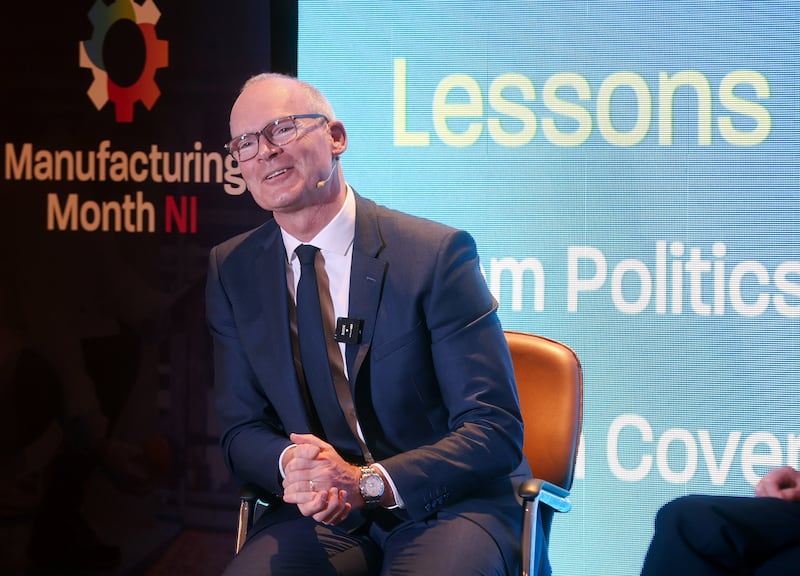 Former tánaiste Simon Coveney speaking at a recent Manufacturing NI event in Belfast. PICTURE: MAL MCCANN
Former tánaiste Simon Coveney speaking at a recent Manufacturing NI event in Belfast. PICTURE: MAL MCCANN
“I tried to be as frank and as honest and respectful as I could to all sides and I think in the end, we got a result that isn’t perfect but it was probably the best outcome to those negotiations we could’ve got from an Irish perspective, north and south – though it took a bit longer than I would’ve liked.”
In terms of the criticism levelled at him by unionists, he argues that it was unjustified.
“I do regret the fact that many in the unionist community saw me as someone who was trying to force something on them they didn’t want, but that wasn’t the case. I didn’t deal the cards here: the situation was forced on us by the decision of the UK as a whole to leave the European Union.
“I’m sure there are some people who still believe that the outcome wasn’t fair or didn’t respect their identity or whatever, but nobody was entirely happy and people have learned to live with it.
“I do wonder if most people even notice that there are checks between GB and Northern Ireland. I know ideologically people have a big problem with that – I get that, and I understand it – but the alternatives were worse, and that’s the bottom line.”
The most most sinister manifestation of unionist backlash against the then foreign affairs minister came in March 2022, when a peace-building event he was addressing at the Houben centre in north Belfast was abruptly interrupted by a bomb scare, which later turned out to be a hoax.
A funeral at the adjacent Holy Cross Church was also disrupted, while a number of houses in the area were evacuated.
Coveney recalls that “it all happened so quickly”.
“I was whipped off the stage and taken away in a PSNI Land Rover.”
He returned six months later to complete the speech.
The person he most feels for is the electrician whose van was hijacked and loaded with what the driver believed was an explosive device.
“Honestly, the person I was and still am most upset about in relation to that event was the poor individual who was essentially stopped on the street, his van was hijacked, before he was held at gunpoint.
“They put a barrel into the back of his van and told him it was a bomb. He was forced to drive right up to the front door of the event that I was speaking at… his life has been shattered by that incident; he’s had to leave Northern Ireland; he no longer has the business that he’d been building.
“I feel terrible for him and his family and I can’t change that. He would never have been stopped if I hadn’t been in Belfast that day and I’m very conscious of that.”
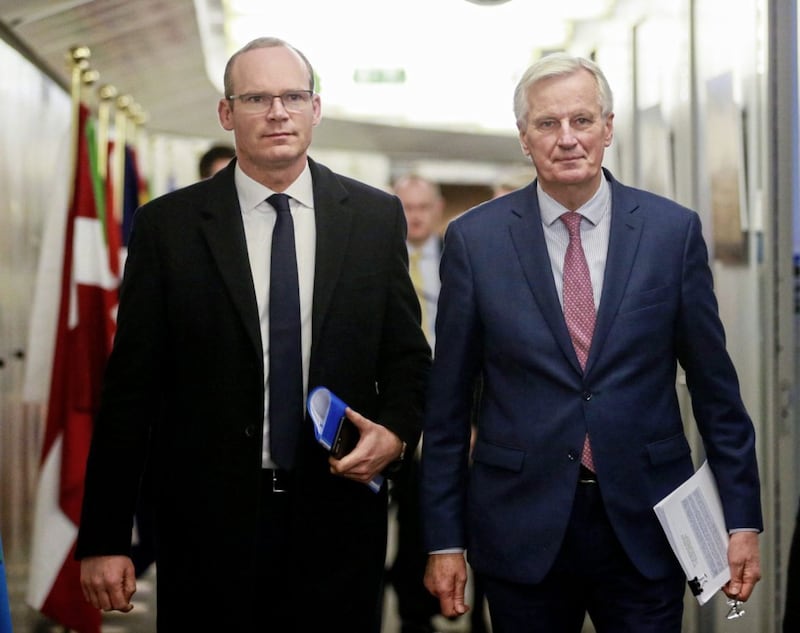 Simon Coveney pictured in 2019 with EU chief Brexit negotiator Michel Barnier
Simon Coveney pictured in 2019 with EU chief Brexit negotiator Michel Barnier
The former tánaiste is keen to stress his continued fondness for the north and welcomes the fact that on his latest trip across the border he’s “not accompanied by two burly PSNI officers”.
“I love Northern Ireland. I love coming up here. I love the people here, though the feeling isn’t always mutual.
“There are some in the unionist community who believe that I had agendas that I was trying to force an outcome on Brexit that was about undermining the union – nothing could be further from the truth: I was a pragmatic politician trying to find an intelligent way of solving a very real problem.”
Coveney bowed out of politics, arguably prematurely, in 2024 in the aftermath of Leo Varadkar’s sudden resignation.
These days, at 52 and after a career in politics spanning more than a quarter of a century, he has a range of business roles, including his own Cork-based consultancy and as a non-executive director with engineering and robotics firm Reliance.
One week of each month is spent in the UAE advising global businesses on geopolitical issues.
“If I’m honest, even when I was in my thirties and forties, in my own mind, I knew that once I hit my fifties that I wanted to potentially look at a new direction; to challenge myself in new areas.
“I was always curious about the private sector. I wanted to be part of building something, in terms of a commercial business, and now I have the chance to do it.
He believes he’s “very lucky” to have left politics with his reputation intact.
“I might not be liked by everybody, but hopefully I’m respected as someone who who was pretty straight,” he says.
As expected, the former Fine Gael deputy leader welcomes the recent outline agreement between the EU and British government that will lead to the latter aligning more with the former.
Coveney says criticism of the deal in what he terms the “Conservative press” is “outdated”.
“I really hope this is the start of a new direction of cooperation and better relations between the UK and EU.”
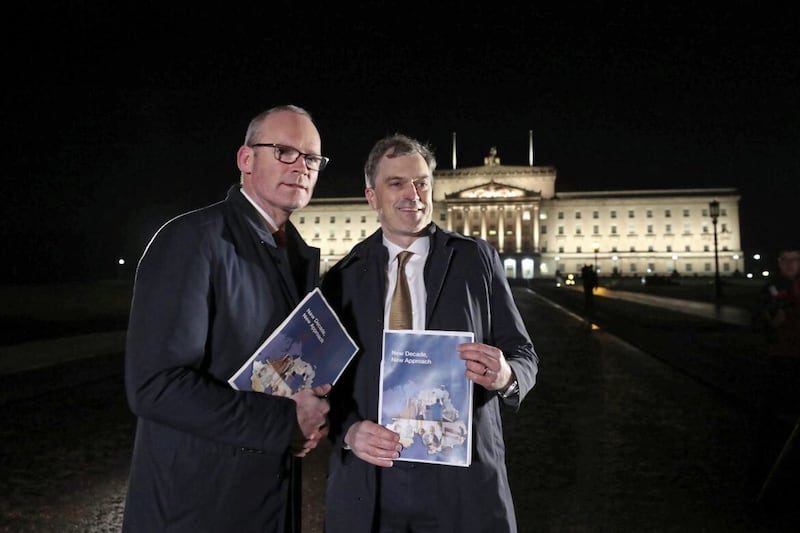 Simon Coveney (left) with the then secretary of state Julian Smith announcing the New Decade, New Approach agreement in January 2020
Simon Coveney (left) with the then secretary of state Julian Smith announcing the New Decade, New Approach agreement in January 2020
He maintains that despite the deal, the north’s dual market access still offers unprecedented opportunities but argues that its status is undersold.
“I know doesn’t suit everybody’s political narrative but certainly from a trading opportunity, it’s undoubtedly a potentially hugely positive marketing tool, and not just marketing tool, it’s a very positive reality for exporting-based manufacturing in Northern Ireland.”
On Leo Varadkar becoming a cheerleader for Irish unity, having arguably done little to advance the cause while in office, the former taoiseach’s one-time deputy says criticism is “unfair”.
“Leo’s a straight talker. He had lots of responsibilities as taoiseach and I think the setting up of the Shared Island unit was a very positive contribution, and continues to be.
“Leo did a lot more than a lot of other taoisigh in the context of of Northern Ireland but you shouldn’t forget some of the other pressures that he was under at the time and he would have had to have balanced those.”
On the ongoing humanitarian situation in Gaza, Coveney describes the the October 7 attacks by Hamas as “despicable and unforgivable”.
He says Hamas “effectively sacrificed their own people in some ways”, as the Israeli military response could have been predicted.
“That’s not to say that what Israel is doing and continues to do is in any way justifiable – it’s heartbreaking.”
The former foreign affairs minister says Ireland is “arguably the most vocal” but contests that “if you move too far from the centre ground position on the Middle East conflict, then you actually lose credibility”.
“So the job of Irish diplomacy is to actually bring the centre ground of European politics towards our perspective around the application of international humanitarian law to protect Palestinian children in the same way that it needs to protect Israeli children.”
